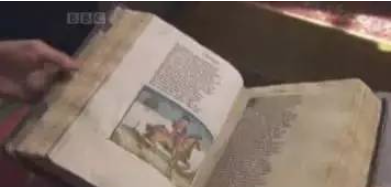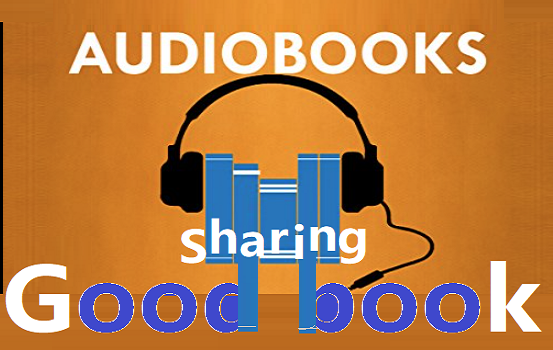100 classic books that have influenced the world
1, plato’s “ideal country”, the first utopian program in the history of human thought, the landmark work of the master of philosophy plato, the source of western philosophy.
2. aristotle’s political science, the origin of the exploitative class political science system, has many academic values, and plays an irreplaceable role in understanding the situation of greek society at that time, understanding the political, legal, ethical and educational thoughts of the ancient greeks, and studying aristotle’s theories.
3, the manu code, the precious literature of ancient indian law, its core content can be summed up as one point, that is, to maintain the caste system. it promotes the myth of caste origin, lists the different status, rights and obligations of various castes, provides for rewards and punishments in violation of the caste system, and supplements such rewards and punishments with “afterlife” bitter pleasure. therefore, as a tool to safeguard the interests of the higher castes of the exploiting class, the role of the manu code is incomparable even to that of a pure code. helps us understand the caste system of ancient india and its deep-rooted influence on indian society.
4. chastiny’s general theory of law, which is a textbook of roman private law, first, it integrates all the basic principles of roman law and is the essence of roman law; second, clearly organized, clear concept; third, the text is simple, easy to read; fourth, the content is informative, including all aspects of civil law.
5. machiavelli’s the monarchy, first of all free from the theological politics, is a disparate and unreadable book, has been touted as the desk book of successive european monarchs, the supreme guide of politicians, the ruling class to consolidate the principles of governance of its rule, and the most unique and incisive anatomy of the skills of the human race in political struggle. since its inception in 1532, the book has caused great repercussions in politics, religion, academia and other fields from the west to the east for more than 470 years, and has been listed by western critics as one of the ten works that have influenced human history on the same basis as the bible and capitalism.
6. thomas more’s utopia, the foundation of imaginary socialism, is the earliest imaginary socialist, who, with great talent and enthusiasm, depicts the political, economic and cultural life of utopians, in sharp contrast to british 16th-century society. utopia is not only an important document in the history of socialist thought and political scholarship, but also a masterpiece in the field of western literature.
7. bacon’s new tools, knowledge is power, which reflects bacon’s philosophy, is the new world view and methodology of the british bourgeois revolution. he publicly affirmed that the purpose of writing “new tools” was to provide a new method of reason, that is, a new tool of understanding, which is based on materialist empiricism. he systematically expounded the author of the generalization method, called “the new tool”, in order to stand in contrast to aristotle’s book “tools theory”, which expounded the logic of interpretation, and fully embodied his spirit of struggle.
8, locke’s theory of government, criticizing the theology of the monarchy, the creation of a new national origin, said that the main content is to refute the british royalist phil mc to maintain the theory of the monarchy, while advocating sovereignty in the people.
9, montesquieu’s “on the spirit of law”, the separation of powers said from the beginning
10. rousseau’s theory of social contract, the theoretical program of bourgeois revolution
11, paine’s common sense, the ideological weapon of the north american colonial revolution
12, san simon’s “on the industrial system”, all people have to work
13. owen’s revolution in human thought and practice, marx said it was a very important book
14. fourier’s “the new world of economy and collaboration”, a satire and critique of the scourge of civilization
15. napoleon code, my civil code will always exist, the french civil code published in 1804, also known as the napoleonic code is the product of the french bourgeois revolution of 1789. it was one of the earliest civil codes of bourgeois countries; after some amendments, it is still in force in france.
16. krausewitz’s theory of war, war is a continuation of politics and an unfinished work, but because krausewitz paid attention to the dialectics of german classical philosophy to examine the problem of war, it expounded a series of main ideas such as “war is nothing more than the continuation of politics by another means” which caused a revolution in the theory of war.
17. tocqueville’s “on american democracy” studies the classics of american democracy, and “on american democracy” is very political. the nature of american-style democracy and its root causes the ultimate secret of thinking and dissecting social change: why is democracy coming all over the world? why didn’t the american revolution break out?
18. marx and engels’ communist manifesto, the proletunicies of the world, joined forces to have such an impact on russian and chinese politics.
19. fukuzawa’s “an overview of civilization” encourages the development of capitalist japanese masterpieces
20. auburn sea international law, an authoritative teaching material of western international law
21, mahan’s “the impact of maritime power on history”, a guide to the sea
22. lenin’s “the state and the revolution”, a representative work of marxist state doctrine
23, duhei’s “air power”, the foundation of the air force military theory
24, hitler’s my struggle, the nazi manifesto, was also named the world’s top ten evil books
25, herodot’s history, the first monument in the history of western history
26. the history of the war of peloponnese, a model of western classical history
27, sanofin’s long march, the jewel of western history
28, tassie’s chronicles, the highest achievement of the development of ancient roman history
29. apian’s “roman history”, the founding of western history ( the end of the chronicles)
30, “marco polo travels”, one of the world’s great strange books, the history of the first western perception of the east, it opened the mysterious door of the east to the whole of europe
31, vico’s “new science” for the modern philosophy of history laid the foundation, this book states: this social way of life is in line with the true nature of human civil affairs, therefore, nature has laws. the rationality of the arrangement of god’s intention in this regard is the main subject to be explored in our science, so this science is a rational civil theology of god’s will
32, miner’s “the history of the french revolution”, the closest to the historical reality of the force, he from a relatively close distance, with a rigorous attitude, with a wealth of historical facts and vivid words described the french revolution, the hot moon coup, the period of government, the period of government and the first empire this important historical process. the book became a world famous study of the history of france from 1789 to 1814.
33, rank’s the history of the pope, a mirror of the reformation
34, robinson’s “new historiography”, which ushered in a new era of history in the united states
35, wells’s outline of world history, by a british writer who visited lenin and stalin
36. toninby’s “historical research”, the foundation of the “historical view of cultural forms”
37. aristotle’s metaphysics, the bible of western philosophy, have you thought about the world’s ontotosphere? have you ever thought about the real origin of everything? the great ancient greek philosophers help you answer this question. he explores the philosophical problem of “existence as existence” in thoughtful language. by the end of this book, your thinking will surely become deeper and more thorough.
38. luke’s the theory of materiality, a long poem of ancient roman philosophy, is the only work that systematically expounds the atomic materialism of ancient greece and rome
39, voltaire’s dictionary of philosophy, the day of reason, you will tremble!
40. hume’s theory of human nature, the logical end of modern empiricism
41, diderot’s encyclopedia, a banner of the enlightenment
42. kant’s introduction to metaphysics in the future, a concise outline of a priori philosophy
43, hegel’s “psycho phenomenology”, the adventure of the human spirit
44, schopenhauer’s “the world as will and appearance”, the world is downright appearance and will. schopenhauer’s philosophy of life is based on his philosophical ontology, the doctrine of will. this is systematically and comprehensively described in his masterpiece, the world as will and appearance. through “the wisdom of life”, especially through the pursuit and practice of religious belief, one can overcome one’s will and overcome one’s desire, thus finally relieving one’s pain. it can be said that this book is a necessary bibliography to study the author’s philosophy, which has high academic value.
“the world is my will, the world is my appearance.” at the time of the book’s completion, schopenhauer was only 28 years old, and his long life was merely explaining or supplementing the book, which later influenced philosophical masterpieces including nietzsche, wagner, thomas mann and even in doctrine, and contained all the details of schopenhauer’s philosophy. the philosopher, known as the extremely sad and pessimistic, conquered countless descendants with his willfulness and sad tone, arguing that “life is like a pendulum, swinging between pain and burnout … when people attribute all suffering to hell, the only remaining world is burnout. ”
45. Feuerbach’s The Nature of Christianity, the secret of theology is human nature. Religious images are neither thoughts nor, at least, thoughts in the sense of religious philosophy, nor as things, but as images. This means that in this book, theology is neither regarded as a mysterious behavioral theory (Pragmatologie) as Christian mythology, nor as ontological as a speculative religious philosophy, but as psychiatry.
engels’s anti-durin theory, an encyclopaedic marxist work
47, nietzsche’s “chara tustra said”, in the name of the lord of fire, said nietzsche superman. his thoughts not only nourished freud, bernard shaw, camus, sartre, heidegger, wang wei, lu xun, guo moruo and other chinese and foreign cultural giants, but also the influence can still be truly felt today.
freud’s introduction to psychoanalysis has a great influence on modern psychology.
49. weber’s protestant ethics and the spirit of capitalism, bourgeois ethics and business
50. russell’s history of western philosophy challenges aristotle and hegel
51. heidegger’s existence and time redefines the philosophical work of the concept of existence
52, the bible, the world’s most widely circulated book
53, quran, sacred. before the quran, the arabs did not have any books, so those who studied the history of arab literature had to study the quran, because in the sixth and early seventh centuries of the gregorian calendar, the rational and literary life of the arabs was reflected in the quran
54. adam smith’s study of the nature and causes of national wealth, an immortal masterpiece that influences the historical process of the western world. not only has it directly contributed to the development of british capitalism, but it has probably not had such a wide impact on the development of world capitalism as there has been any other bourgeois economics book. no wonder some bourgeois scholars at that time regarded it as the treasure. however, history soon showed its limitations and shortcomings.
55. li jiatu’s political economy and the principles of taxation, the completion of classical political economy
56. john muller’s principles of political economy, a collection of western economic theories
57, marx’s “capital”, with a lifetime of energy casting the theoretical monument
58. malthus’s “the principles of population” occupies an important place in the history of demography. the proposition that the population cannot be increased without means of livelihood is extremely clear and needs no further explanation. as long as there is a means of livelihood, the population will increase, as the history of all peoples has amply demonstrated. the fact that the dominant population proliferation does not produce poverty and evil will not be suppressed, that people have experienced the bitter fruits of poverty and evil in their life experiences, and that the material causes of these two bitter fruits still seem to be at work, provide convincing evidence for the above proposition.
59. keynes’s general theory of employment interest and money, the far-reaching keynesian revolution
60, samuelson’s economics, the birth of a neoclassical integrated system
61, homer’s “iliad” shows a permanent charm. a ten-year battle caused by beautiful helen – the trojan war! a long and glorious epic about the trojan war, an immortal masterpiece of european classical literature, homer’s epic, !!! in this book, the greek hero achilles and the fearless prince hector play a century-long battle for honor and dignity
62, “one thousand and one nights”, the wonders of arab folklore
63, “aesop fables”, more than 300 years ago introduced to china’s famous articles
64, dante’s “god song”, flashing the humanist light of the epic
65, bo jiaqiu’s “ten days of talk”, the opening of contemporary short stories
66, cervantes’s “don quixote”, stabbed to the medieval european feudal forces sword
67, shakespeare’s hamlet, the tragic image that shook the heart. the story of prince hamlet of denmark’s revenge for his father. although the tragedy is based on danish history, it deeply exposes the sharp struggle of corruption and depravity within the court of feudal society. hamlet avenged his father, killed his uncle, and he himself was secretly counted by his uncle, who poisoned the sword in a duel with leotis. this conflict, which took place in the palace, is not only a tragedy of the family, but also a tragedy of the palace and the country. hamlet ultimately failed to fulfill his desire to make a comeback, handing over the kingdom to the norwegian prince fordingbras before his death.
68, moliere’s “hypocrite”, depicts the hypocrite’s thousand-year-old masterpiece
69, defoe’s “robinson crusoe” shows the emerging bourgeoisie. robinson, a young british seafarer, was swept to a desert island by wind and waves during a shipwreck. although out of danger, but he was alone, helpless, in order to survive, he used his own wisdom and strong will, overcome all kinds of hardships, built forts, “villas” and ships. he saved the captives of the earthly men and helped the british shipowners recapture the ship, which had been occupied by pirates. finally, he said goodbye to the desert island where he had lived for 28 years and returned to england by boat.
70, goethe’s “the troubles of young witt”, napoleon read seven times
71, shelley’s “liberated prometheus”, the prophet of genius
72, balzac’s eugenie grande, the living story of the greedy miser
hugo’s les miserables, a true humanitarian’s literature. it was hugo’s novel written during his exile that was his masterpiece and one of the treasures of the world’s literary treasures. les miserables deeply exposes and criticizes the decadent nature of the feudal dictatorship in 19th-century france and its evil phenomena through the tragic experience of jean-jean and others, as well as a series of moving deeds after the incarnation of the bishop of valjean, and expresses its compassion and sympathy for the exploitation, fraud and cruel persecution suffered by the poor people under the pressure of feudalism.
hugo’s “minister of chincha” is a never-ending derision
75, dickens’s tale of two cities, the life of the french revolution. it is one of dickens’s most famous works. set against the backdrop of the french revolution, the novel recreates the historical landscape of paris and london and the whole of france and england, and interweaves the three separate and interrelated stories of wrongful imprisonment, love and revenge, with the experience of the fictional character dr. manette as the main clues. the significance of the novel lies in using literature to find a way out of the deepening social contradictions of the british situation, inspired by the historical experience of the french revolution.
76, tugenev’s “father and son”, contradictory characters under the contradiction psychology
77, tolstoy’s war and peace, an epic masterpiece of grandeur
78, xiao zhongma’s “tea flower girl”, to ji female as the theme of the biography
79, ibsen’s “doll’s house”, for women’s liberation cry
80, mark twain’s the adventures of tom sawyer, a children’s adventure novel about the world. is a young man’s growth song, the sea wide sky dream of the thrill, ups and downs between the storyline flashing light. the power of justice and emotion deeply touched the hearts of children. three naughty boys plucked up the courage to row a raft away from home and go camping on the island. the endless stream of water burned the boys’ growth footprints. the boys’ flying courage and ambition, together with their tortuous and thrilling treasure hunt, make up this silent, tense and gripping novel.
81, chekhov’s “three sisters”, the dreamer of a beautiful life
82, mrs. stowe’s uncle tom’s cabin, you’re the little woman who wrote the book that sparked the war. a great book that reflects the slave system. the publication of this novel set off the american abolitionist movement and played a great role in promoting the outbreak of the american civil war. it has been translated into many languages over the past 100 years and has had a profound impact on the people of the world in their struggle against racial discrimination and for liberal democracy.
83. gorky’s mother, the first socialist realist work
84, steinbel’s grapes of wrath, why they went bankrupt
85, hemingway’s “whose bells are ringing”, the anti-fascist battle horn
86, the foot is short, the inch is long – mitchell’s “gone with the wind”
87, euclidean’s geometric originals, the bible of mathematics
copernicus’s theory of astrological operations, declaration of independence of natural science
89, galileo’s “two new sciences”, the gateway to modern physics
90, harvey’s the theory of heart and blood movement, a medical mess anyway
91, darwin’s “the origin of species”, the race for heaven, the survival of the fittest
92. morgan’s ancient society opens up a new situation for the development of anthropology
93, newton’s mathematical principles of natural philosophy, a masterpiece of human wisdom
94, mendel’s experiment in plant hybridization, ahead of the buried cornerstone
95, einstein’s “narrow and general theory of relativity”, across the era of monuments
96. wegner’s the formation of continents and oceans, a new view of the earth
97. pauline’s history of experimental psychology, the beacon light of psychology
98. joseph lee’s history of science and technology in china, a shining treasure of science. the famous british historian joseph li spent nearly 50 years writing a number of volumes of “the history of science and technology in china”, through rich historical materials, in-depth analysis and a large number of comparative research between east and the east, comprehensively and systematically discussed the brilliant achievements of ancient chinese science and technology and its great contribution to world civilization, covering philosophy, history, scientific thought, number, science, science, science, heaven, earth, health, agriculture, medicine and engineering technology and many other fields. during the period of the republic of china, cheng book was helped by many chinese academic masters.
99. bronfeld’s theory of language, a great work that promotes contemporary language research
100, encyclopaedia britannica, a famous university without walls
The Most Valuable Books Of The 21st Century




